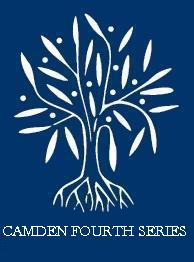No CrossRef data available.
Article contents
The Speech of the Right Honourable Thomas Earl of Stamford, Lord Gray of Grooby, &c. at the General Quarter-Sessions held for the County of Leicester, at Michaelmas, 1690. His Lordship being made Gustos Rotulorum for the said County by the Late Lord Commissioners of the Great Seal
Published online by Cambridge University Press: 21 December 2009
Extract
THIS IS now principally Addressed to you, because I know you will read, not with biass'd Understanding, nor Minds preposs'd or warpt, but with unprejudiced Candour and Fairness; and will put that natural and genuine Construction on this most Noble Author's Speech, which, considering the sincerity of his Intentions, it ought to receive; which were (when it was spoken, and continues the same now it is Printed) no other than to support and justifie the Legal proceedings of the late Convention and Parliament, in the placing Their present Majesties on the Throne of their Ancestors, That being (Ultimum necessitatis Praesidium, as Grotius's words are, i.e. *) the last Refuge in that extream Necessity the Government was then brought to, by Those Evil Councellors, Judges and Ministers, who had been imployed by the Late King, to subvert and extirpate the Protestant Religion, and the Laws and Liberties of this Kingdom, in ways so open and violent, that (as Suetonius saith) vix referri, audirive, nedum credi fas est, it is scarce allowable either to be related, or heard, and much less to be believed.
- Type
- Research Article
- Information
- Copyright
- Copyright © Royal Historical Society 1992
References
page 33 note 1 Thomas Gray, 2nd Earl of Stamford, 1654–1720. He was a friend of the first Earl of Shaftesbury, and one of the first noblemen to join William in Nottingham. In 1694 he was made a Privy Counsellor. After the accession of Queen Anne, he was dismissed from all his appointments and offices, but was made President of the Board of Trade, 1707–1711. This text is the first plea in situ (among this collection) in favour of all that the Glorious Revolution could represent, after the departure of James.
page 34 note 1 Those two adjectives were an important constitutional point in the election of William and Mary as sovereigns. Cf p. 1 of the text itself.
page 36 note 1 The ideas expressed in Locke's Treatise of Government, 1690.
page 40 note 1 Considering the length of this text, the text of the Latin quotations has been suppressed except if it is not translated into English.
page 41 note 1 Osorio de Fonseca, bishop of Silves.
page 42 note 1 Probably André du Chesne, chronicle writer, a monk of the Abbey of St. Denis, died 1302. See Chronique latine… ed. Géraud, H., 2 vols (Paris: J. Renouard, 1843–1844).Google Scholar
page 42 note 2 Le Rosier des Guerres, composé par le feu ray Louis XI…pour Mgr le Dauphin Charles. (Paris: N. Beron, 1616).Google Scholar
page 42 note 3 Chronicon D. Isidori, archiep. hisp. (Taurini:J.B. Bevilaqua, 1593).Google Scholar
page 42 note 4 Probably La Corònica general de España…que continuava A. de M., 2 vols. (Madrid: Alacala de Ilenares… 1574–1577)Google Scholar
page 43 note 1 Los XL Libros del Compendia historial de la Chranicas y unviersal Historiade todos los reynos de Esp…. 2 vols.(Anveres: C. Planino, 1571)Google Scholar
page 44 note 1 Davidis Chytraei operum tomus quartus, Saxonia, ab anno A.C. 1500 usque ad 1599 recognita… (Sumtibus H. Grossii: Lispiæ, 1599) fol.Google Scholar
page 44 note 2 Buchanan Drummond's Hist, of the Five James: It ought to be William Drummond, History of Scotland, from the Year 1423, until the year 1542. Containing the Lives and Reigns of James the I… London: 1655. Leslaeus: De origine, monbus, et rebus gestis Scotorum libri decem… Authore Ioanne Leslaeo. Romae: 1578Google Scholar [John Lesley, Scot, 1527–96, Bishop of Ross]
page 45 note 1 Jacobus Lampadius, Tractaus de constitutilone imperii Romano-Germanici, (Lugduni Batavorum: 1634)Google Scholar. in-160.- De Republica Romano-Germanica. (Helmestadii, n.d.) - Henningus Arnisaeus, (d. 1635–36?) physician, philosopher and political writer, De autoritate principum in populum semper inviolabili…, (Francofurti: A. Eichorus, 1612). See Allgemeine Deutsche Biographie (Leipzig: Duncken & Humbolt, 1875) vol. I, 575Google Scholar. See the same for Veit Theodorus or Diderick, (1509–1549); vol. 5, 196–7; Hermannus Conringius, vol. IV, 446–51.(1606–81)
page 45 note 2 Johannes Aventinus, Annalium Boiorum libri septem (Ingolstadii: Weissenhornios, 1554)?
page 45 note 3 Robert Fabian, d. 1513, The Concordance of Histories, 1516.
page 46 note 1 Galf. Monum.: Chronicon Galfridi le Baker de Swynbroke, ed. Thomson, E. M. (Oxford, 1889)?Google Scholar
page 47 note 1 Daniel: Samuel Daniel's Collection of the historie of England. London: N. Okes, 1618.Google Scholar
page 49 note 1 An Abridgment of the Chronicles of England (London: R. Totyll, 1563).Google Scholar
page 49 note 2 Will. Malmesbury (1090?–1143?) Gesta Rerum Anglicarum, 5 books, continued by Historia Novella.
page 50 note 1 Ingulfi Croylandmsis historia, ed. Sir H. Savile, 1601- Rerum Anglicarum Scriptor…. ed. W. Fulman, 1684.Google Scholar
page 51 note 1 Eventibus Angliœ a tempore regis Edgari usque mortem regis Ricardi Secundi, 1652Google Scholar, fol.
page 51 note 2 Richard of Hagustade: Historiœ anglicanœ scriptores X. Simeon monachus Dunelmsensis. Johannes prior Hagustaldensis. Ricardus prior Hagustaldensis. [seemingly edited by Sir Roger Twysden 1597–1672]. Londoni, 1652.
page 51 note 3 Historical Works of Gervase of Canterbury, ed. W. Stubbs, 2 vols (1879–1880, Rolls series.)Google Scholar
page 53 note 1 Opera historica, ed. Stubbs, W., 2 vols. (London: Longman & Co, 1876).Google Scholar
page 54 note 1 Wm of Neuburgh or Newbury (1136–1198?) Historia de rerum Anglicarum, criticised the fables of Geoffrey of Monmouth.
page 55 note 1 Roger de Hoveden or Howden, d. 1201?, Chronica, and de Gesta Regni Henrici.




